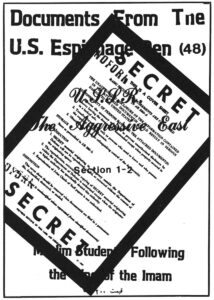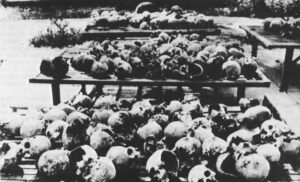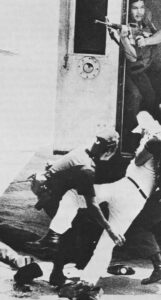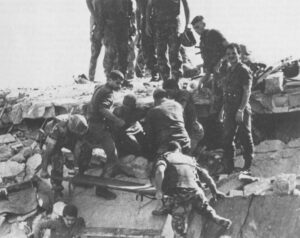Kai Bird
- 1984

Fellowship Title:
- Diplomats and Politics: A Profile of the U.S. Foreign Service
Fellowship Year:
- 1984

The Captured Documents
Four years have passed since the end of the 444-day Iranian hostage crisis. But if with their release, the American hostages and their long ordeal have faded from the headlines, the Iranian students still hold hostage something of great value to the American foreign policy establishment–a treasure of thousands of pages of highly classified State Department and Central Intelligence Agency (CIA) documents. And much to the embarrassment of our policymakers, the students–Muslim followers of the Line of Islam–are gradually releasing their new hostages. To date, they have published 41 volumes of “Captured Documents” found in the files of the embassy. Without a doubt, this cache of classified material represents the most serious security lapse since 1962 when Kim Philby, formerly chief of British counter-Soviet intelligence, was revealed to have been a Soviet double agent. The Iranian Captured Documents divulge more about closely guarded U.S. “intelligence sources and methods” than the Pentagon Papers, which after all, were only a series of analytical reports based on access to the raw cable traffic. By contrast, the Captured Documents

Dissent in the Foreign Service
Gregory J. Newell is the young man Ronald Reagan has put in charge of this administration’s policy on the United Nations. Newell, 35, as Assistant Secretary for International Organizations at the State Department, has decided the best way to implement Reagan’s policy of distrust of the UN is to oppose every budgetary proposal for the expenditure of new monies made by any UN organization. This is called Newell’s “budgetary policy” and not every one in the Foreign Service likes it. One Foreign Service officer (FSO) posted in Geneva recently filed a cable through what is called the “dissent channel,” protesting that Newell’s rigid budgetary policy was often counter-productive. Thus, if a proposal was made to study the status of human rights in Soviet-occupied Afghanistan, the Geneva delegation would automatically have to oppose the measure even though the Reagan Administration would probably have liked to embarrass the Soviets with a critical UN report. The officer suggested that decisions on whether to vote for new expenditures ought to be left up to the U.S. delegation at each

Inside the Manila Embassy
MANILA, The Philippines–When Philippine opposition leader Benigno “Ninoy” Aquino was assassinated in August, 1983, the first decision confronting the American ambassador was whether to attend mass for the fallen opposition leader. President Ferdinand Marcos, in power for 18 years, made it clear that he wanted no one in the diplomatic community to appear at the mass. His Foreign Ministry sent out a circular informing all the resident diplomatic missions that their attendance at the mass would be viewed as an unfriendly act. Filipino security men carry the body of Benigno Aquino. WORLD WIDE PHOTO Ambassador Michael Armacost decided to go anyway. According to an officer in the Political Section of the embassy, he made the decision without any extensive consultation with Washington. Armacost just didn’t think attending a funeral mass had anything to do with protocol. The State Department was merely informed that the ambassador would attend the mass. It was the first overt signal to the Filipino public that the United States would no longer give Marcos unequivocal support. In the era of instant

Ronald Reagan’s Foreign Service
Once the most insular and sacrosanct of elite bureaucracies, the United States Foreign Service is rapidly becoming one of the most highly politicized agencies in the federal government. The trend did not start under the Reagan Administration, but it has certainly accelerated since January,1981. What has this meant for the effective conduct of American diplomacy? If Reagan believes he now has people in place willing to carry out his particular policies, he also has engendered an atmosphere in which fewer officers are willing to be bearers of bad tidings. Reporting from the field is the heart of modern diplomacy. Ideally, a diplomat’s reporting from abroad can inform Washington how its policy can be carried out given the realities of foreign circumstances. To ignore these foreign realities can be extremely costly, whatever policy Washington chooses to pursue. This was most graphically illustrated with Reagan’s decision to place U.S. Marines in the Lebanese morass. “If the people in NEA (the Near East Bureau) were given the power to dictate policy in Lebanon today,” says one high-ranking Arab
